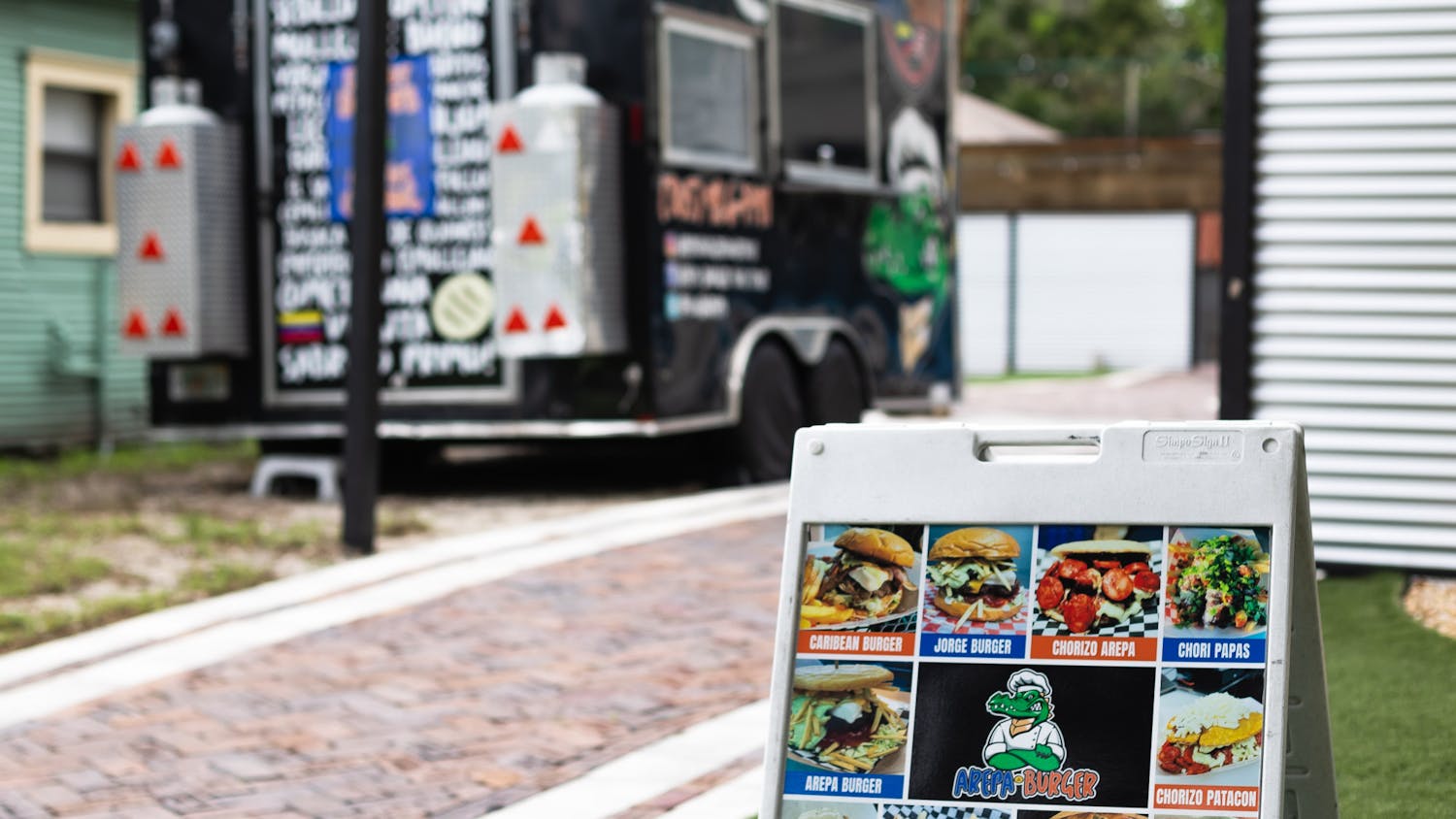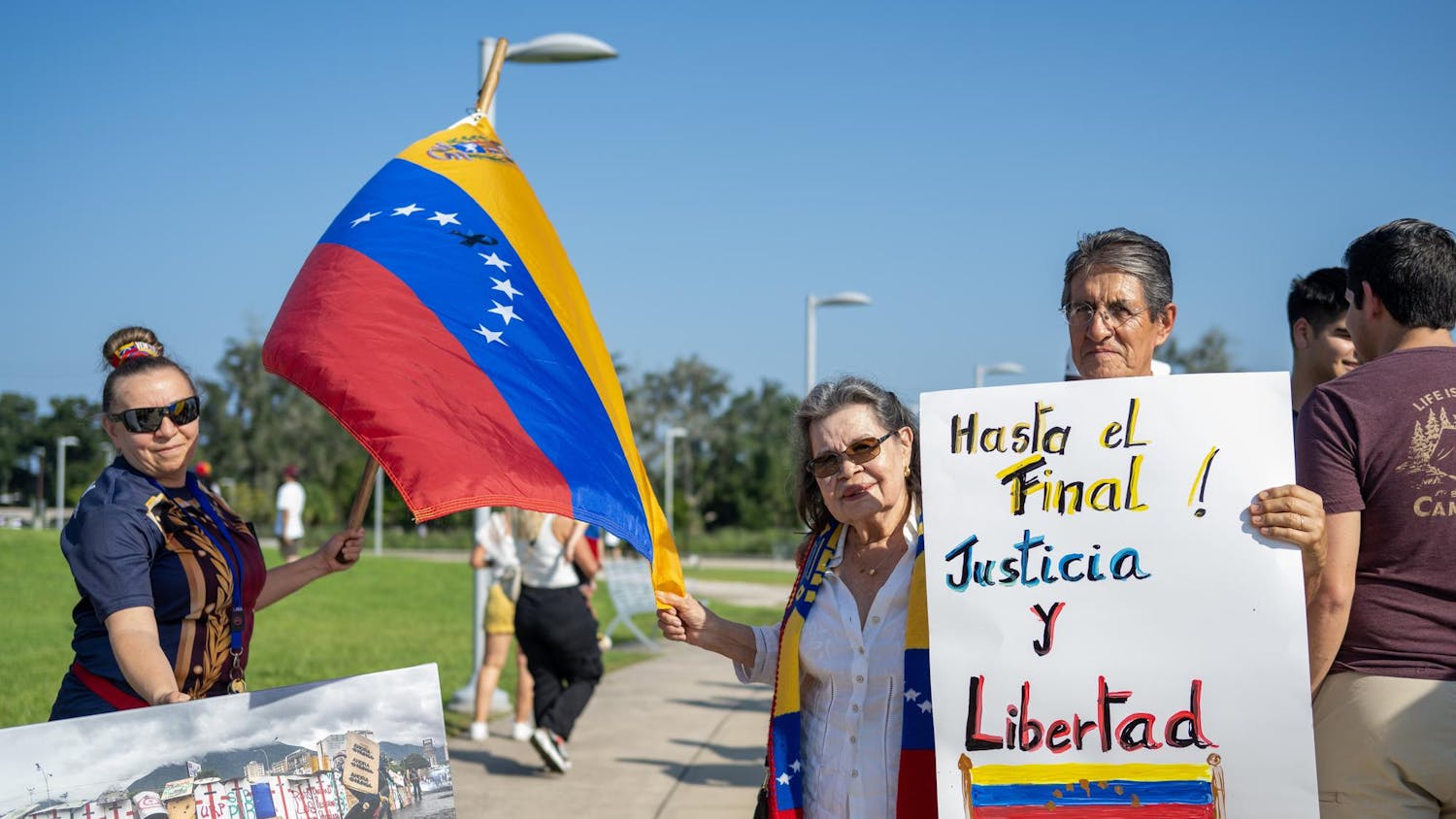Last week, I spent my Wednesday night watching “Breaking Bad” episodes on Netflix.
Meanwhile, my best friend spent his Wednesday night hiding from the police and military forces in the streets of Caracas, Venezuela. He was one of thousands of students who marched peacefully all over Venezuela to express their discontent with the government led by Nicolas Maduro. Luckily for him, he wasn’t one of the nearly 100 students who were captured, arrested and tortured by the police. Luckily for him, he wasn’t one of the two students killed by gunfire.
Maduro took over Venezuela’s presidency after the death of Hugo Chavez in March of last year. Since then, Venezuela has suffered the worst scarcity, inflation and murder rates in Latin America. Caracas, the capital, was ranked the third most dangerous city in the world in 2013. Every day, Venezuelans spend three to four hours in line to buy groceries or medicine.
Monica Spear, a former Miss Universe, was murdered while on holiday with her family. Hers is one of the 200,000 murders in Venezuela during the last 15 years. All of this happens while Venezuela sells oil at record high prices to the world.
The student protests have been going on since last Wednesday. Today marks one week of continuous manifestation. Yesterday Leopoldo Lopez, the leader of the opposition, turned himself in to government forces. But why doesn’t anyone know about this? Why doesn’t the situation in my country get the same attention as troubles in Syria or Turkey?
The answer: a media blackout from the government.
In 2006, Chavez ordered RCTV, a channel with almost four decades of history, to close. Since then, many TV channels have been sold or have changed their editorial lines in favor of the government. Last year, with the selling of Globovision, Venezuelans saw how their last TV outlet was turned into a puppet of the government. Now Globovision has prohibited Henrique Capriles, one of the leaders of the opposition, to go on air.
There is also no paper for the newspapers. El Nacional, a newspaper founded in 1943, had to reduce its publication to 14 pages due to lack of resources, so Venezuelans have fewer and fewer outlets from which to get their information. It’s almost as if George Orwell wrote the script.
However, when Orwell wrote “1984,” neither Twitter nor Facebook existed.
Social media has become the most powerful weapon available to Venezuelans. Hundreds of images have been shared through social media to raise awareness of the human rights violations taking place. Through social media, Venezuelans have let the world see what the government doesn’t want to be seen.
Still, as politicized as this situation may seem, this is not a fight between left and right. Or, as the Venezuelan government puts it, a fight between good and evil.
The reality is that Venezuelans don’t have medicine. The reality is that Venezuelan supermarkets are empty. The reality is that more and more Venezuelan students and professionals flee the country to find opportunities abroad. The reality is that Venezuelans don’t have a neutral media outlet to get their news from.
What the students in Venezuela are fighting for is for their human rights to be recognized and respected.
So, after reading all this, how can you help? Raising awareness of what is happening can be enough. Share the information through social media, but be careful. Remember, there is no “official information” because the government tries to control all news outlets. Andreina Nash, a 21-year-old UF marketing and telecommunication junior, helped by publishing a video called “What’s Going On In Venezuela (In a Nutshell),” which has gotten close to two million views on YouTube.
Me? I’m giving my country a helping hand from far away by writing this column.
[Miguel Machado is a UF telecommunication junior. A version of this column ran on page 7 on 2/19/2014 under the headline "What to know about Venezuela"]





